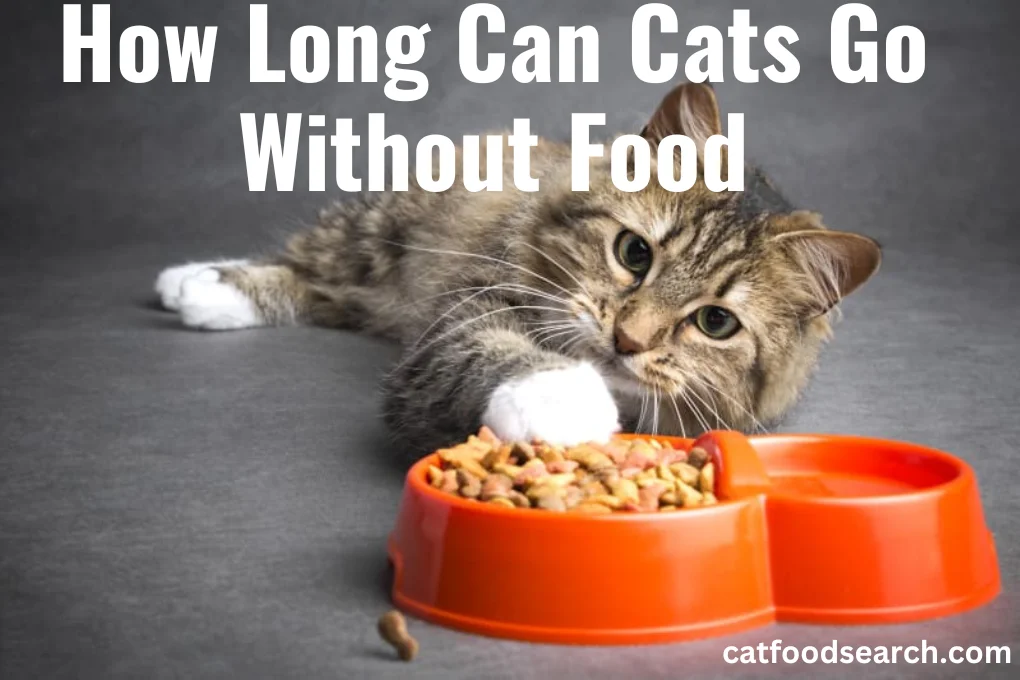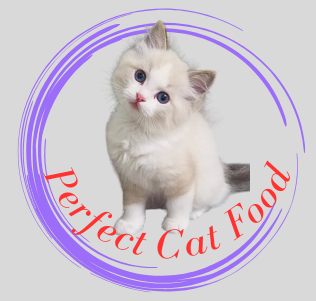Have you ever wondered, how long can cats go without food? A pet owner may wonder this question frequently, especially in hectic or unplanned situations.
As a cat lover and experienced pet owner, I’m here to provide you with all the information you need to ensure the well-being of your beloved feline companion.
Generally, the average amount of time a cat can go without food is about one to two weeks but this can vary depending on the circumstances.
Although cats are amazing creatures, they differ from other animals in that they have particular dietary requirements. Responsible pet ownership requires knowing the maximum amount of time they can go without meals.
I’ll go into the elements, from a cat’s particular physiology to their innate instincts, that affect its capacity to go without food in this blog post.
In order to learn more about the interesting realm of feline hunger tolerance, stay with us if you’ve ever worried about your cat’s appetite.
Table of Contents
How Long Can Cats Go Without Food?
The typical cat can potentially endure without food for approximately one to two weeks, provided they have access to water.
Nevertheless, in the absence of protein, this duration might be shortened to around three to four days, even if they have an adequate water source.
In the dire scenario of having neither water nor food, it is improbable that a cat would live beyond three days.

Young kittens are more vulnerable and should not go without food for more than 24 hours. However, adult, healthy cats can typically withstand a brief period of fasting.
But remember, dehydration can be a bigger concern. Cats need water more urgently than food and severe dehydration can occur within a day or two.
If your cat refuses to eat for more than 24 hours, it’s essential to consult with a veterinarian. Medical issues or stress could be the underlying causes, and prompt attention is crucial to your cat’s well-being.
Always prioritize your feline friend’s health and seek professional advice when in doubt.
Why has my cat stopped eating?
I can offer insights into why your cat has stopped eating. There are various reasons for this behavior:
• Illness: Cats often lose their appetite when they’re sick. It could be due to infections, dental problems, or gastrointestinal issues.
• Stress: Changes in the environment, such as moving to a new home or the introduction of a new pet, can stress your cat and affect their eating habits.
• Dietary Preferences: Cats can be picky eaters. They may refuse food if they don’t like the taste or texture of a particular brand or type of food.
• Dental Problems: Painful dental issues can make eating uncomfortable for your cat, leading to decreased appetite.
• Environmental Factors: Disruptions like loud noises or disruptions to their feeding routine can deter your cat from eating.
• Age: Older cats may experience a reduced appetite due to age-related changes in metabolism.
If your cat has stopped eating for more than 24 hours or shows other concerning symptoms, consult with a veterinarian to rule out any underlying health issues.
What to do if your cat has stopped eating and drinking?
If your cat has stopped eating and drinking, take these steps:
• Consult a veterinarian: Contact a vet immediately to determine the underlying cause and receive professional guidance.
• Observe Behavior: Monitor your cat’s behavior, including any signs of distress or discomfort.
• Offer Tempting Food: Try offering different types of food, like wet or dry cat food, to entice them.
• Hydration: Encourage drinking by providing clean, fresh water. You can also offer ice cubes or water from tuna cans.
• Quiet Environment: Create a quiet and stress-free environment to help your cat relax.
• Maintain Cleanliness: Ensure the litter box is clean and inviting.
• Medication: Administer any prescribed medication as directed by the vet.
• Love and Attention: Give your cat extra love and attention to reduce stress.
How long can a cat go without water?
Dehydration can set in within 24 to 48 hours. Cats need water to function properly. “Dr. Burch informed The Dodo that cats can become dehydrated within 24 hours of not drinking water.”
Kittens and older cats are more vulnerable. They can become dehydrated more quickly. So, it’s crucial to ensure your feline friend has access to fresh water at all times.
If your cat refuses to drink or you suspect dehydration, consult a veterinarian immediately.
Dehydration can be life-threatening and requires prompt attention to keep your cat healthy and hydrated.
How long can cats go without eating?
Cats can go without eating for about 3 to 7 days. The exact duration varies based on factors like age, health, and condition.
Kittens and older cats are more vulnerable and shouldn’t go without food for long. If your cat refuses to eat for more than 24 hours, consult a vet.
Can a cat go 24 hours without food?
Yes, a cat can go 24 hours without food. However, it’s not ideal and can lead to various issues.
Extended fasting can cause health problems and should be avoided. Cats need regular nourishment to stay healthy. If your cat refuses to eat for more than 24 hours, it’s essential to find out why.
Underlying health issues or stress could be at play. Consult with a veterinarian to address the cause and ensure your cat’s well-being.
Can a cat go 48 hours without food?
As a cat expert, I can confirm that a cat can go 48 hours without food. However, this is not recommended.
Extended fasting can harm a cat’s health and lead to complications. It’s crucial to address the underlying reason if your cat refuses to eat for an extended period.
Consult with a veterinarian if your cat doesn’t eat for more than 24 hours.
How long can a cat go without food before liver damage?
I can tell you that liver damage can start to occur in a cat after about 48 hours without food. Since cats’ livers are responsible for metabolizing fat, when they aren’t fed, liver fat builds up.
This can result in the dangerous and perhaps fatal illness known as fatty liver disease (also known as hepatic lipidosis). It’s crucial to monitor your cat’s eating habits closely and seek veterinary attention if they go without food for an extended period.
Prompt intervention is essential to prevent or address liver damage and ensure your cat’s well-being. Always prioritize your feline friend’s health and nutrition.
How long can a cat go without food before kidney damage?
Kidney damage can start to occur after just a few days without food. Cats who go without meals for a long time run the danger of having major kidney issues.
Dehydration from lack of food can put immense stress on their kidneys. If your cat refuses to eat for more than 24 hours, consult a veterinarian immediately.
To avoid kidney damage and keep your cat healthy, early intervention is essential. Always prioritize your feline friend’s well-being and nutrition.
How Can I Get My Cat To Eat?
Getting your cat to eat can be challenging, but there are effective strategies you can try:
• Offer a variety of foods: Cats can be picky, so try different types and flavors of cat food, including wet and dry options.
• Warm the food: Gently warm the cat food to enhance its aroma, which can entice your cat to eat.
• Hand-feeding: Sometimes, offering small amounts of food by hand can encourage your cat to eat.
• Create a quiet environment: Ensure your cat has a calm and quiet space to eat without distractions.
• Consult a veterinarian: If your cat continues to refuse food, seek professional advice to rule out any underlying health issues.
Frequently Asked Questions
What Happens If A Cat Doesn’t Eat For 3 Days?
If a cat doesn’t eat for 3 days, it will be very weak and dehydrated.
What are the signs that my cat is starving?
Signs of a starving cat include lethargy, weakness, rapid weight loss, and a noticeable decrease in activity levels. If you suspect your cat is starving, consult a veterinarian immediately.
How can I encourage my cat to eat if they refuse food?
If your cat refuses food, try offering different types of food, warming their food slightly, or consulting a veterinarian to rule out any underlying health issues.
Is it safe to fast a cat for weight loss?
Fasting a cat for weight loss should only be done under the guidance of a veterinarian. Rapid weight loss in cats can lead to serious health problems, so it’s essential to approach this cautiously.
Can dehydration be more dangerous than hunger for cats?
Yes, dehydration can be more dangerous than hunger for cats. Lack of water can lead to kidney problems and other health issues. Always ensure your cat has access to fresh water.
Final Thoughts
Your cat can go without food for several days, but it’s best if you can avoid it. Most cats will refuse to eat or drink when they’re sick or feeling stressed from a new home. In such a case, a vet visit is essential.
You should be able to tell whether your cat requires medical care by looking at the symptoms that your cat will display. If your kitty may be in danger of not eating, contact a vet immediately.
This article should have helped you better understand what may occur to your pet if they go too long without nourishment.
By reading this article, you will be able to determine the symptoms and common causes of a cat not eating or drinking for several days and prevention methods that you can use.
If your pet is ill, contact a vet immediately; otherwise, try to get them to eat and drink regularly before it becomes necessary.

Hi there! My name is Koushik; I am a cat lover. I specialize in writing about pet care & food. I have a wealth of knowledge on cat food niches and related subjects. I have worked in the pet industry for over 5 years and am passionate about helping cat owners provide the best care for their furry friends. With knowledge of cat food and nutrition, I aim to share their insights and help cat owners navigate the world of cat food niches. I enjoy playing with my two cats, reading, and exploring new cat food brands in my free time.
